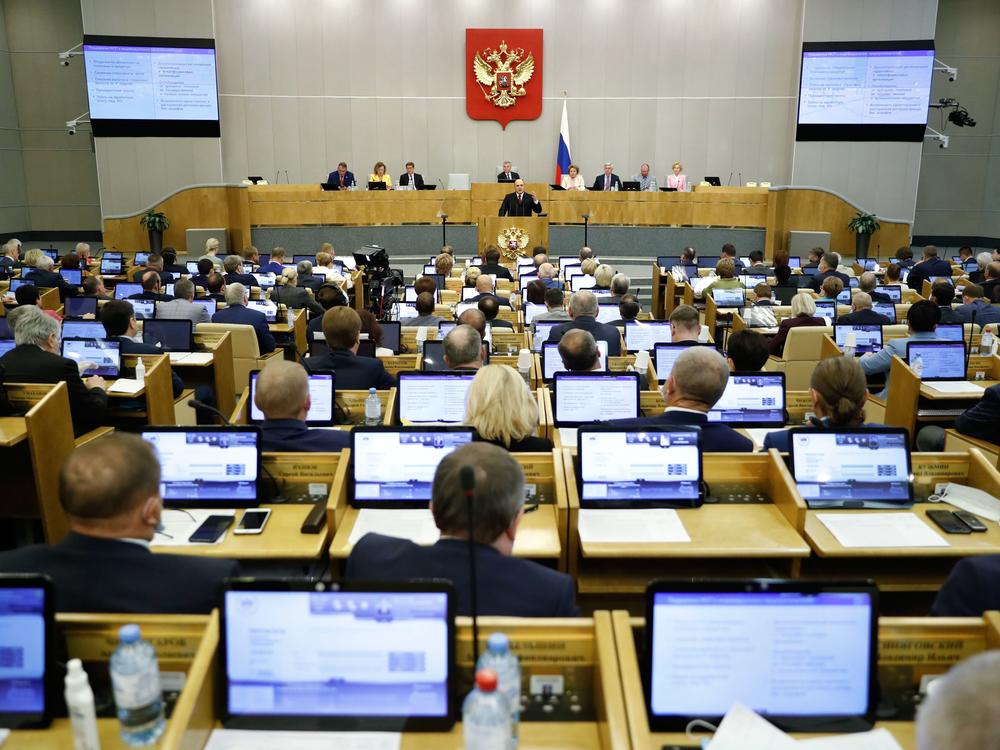Section Branding
Header Content
Russian Lawmakers Pass Bills That Could Block Social Media Sites — And Stifle Dissent
Primary Content
Russian lawmakers have approved a range of new measures that could further stifle dissent and allow tighter restrictions on online content — including blocking websites like YouTube and Twitter.
One bill would allow for the blocking of foreign websites that it says "discriminate" against Russian media. A second law would allow it to levy large fines against companies that don't take down content banned in the country.
A third law would establish jail terms for those convicted of making slanderous comments online or in the media. A person found guilty of slander could face up to two years in jail and be fined up to 1 million rubles (about $13,300), Reuters reports.
The bills were passed by Russia's lower house, the State Duma. If they become law, as expected, they would mean that Russia could block websites like YouTube, Facebook and Twitter that label content produced by Russian state media outlets as being just that. Under the legislation, Russian authorities will be able to block or slow down such sites.
Since August, Twitter has been labeling the accounts of Russian media outlets as being "state-affiliated," angering Russia, Reuters reports. President Vladimir Putin has called for Russia to come up with its own social media platforms to gain greater control.
Kremlin critics, including opposition leader Alexei Navalny, have used Twitter and YouTube to reach millions of Russians, bypassing censorship on state television.
When the draft bill to allow blocking foreign sites was introduced last month, Navalny tweeted: "Great. Let them pass it as soon as possible, the whole country will finally install a VPN" — a tool that can be used to evade government censors.
Human Rights Watch notes that Russian authorities already have a number of ways to restrict online content: "The 2019 'sovereign Internet' law for example, allows the government to use technology to track, filter and reroute Internet traffic, raising concerns over the arbitrary and extrajudicial blocking of legitimate content."
Alexei Makarkin, deputy director of the Center for Political Technologies in Moscow, told Bloomberg that the moves are in anticipation of the incoming Biden administration.
"They are preventively crafting a shield against the support of Russia's opposition from Joe Biden that they expect," he said. "We are ready — that's what they are demonstrating to America now."
NPR's Lucian Kim contributed to this report from Moscow.
Copyright 2020 NPR. To see more, visit https://www.npr.org.

